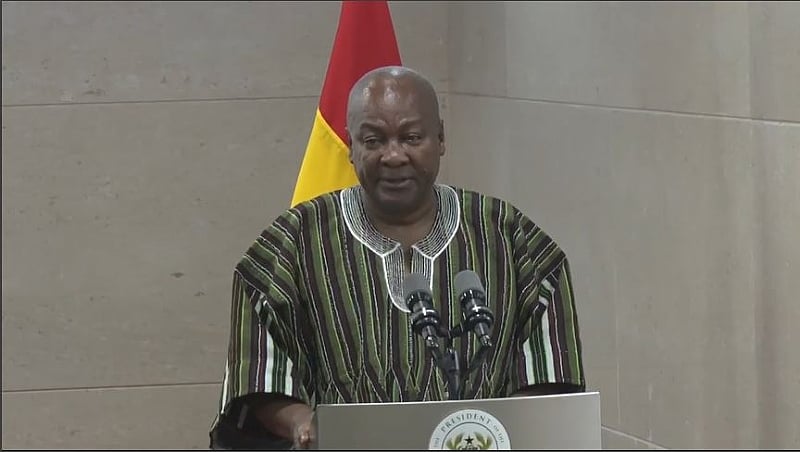The imposition of sweeping import tariffs by the United States in April 2025, enacted through an Executive Order under the International Emergency Economic Powers Act, has sparked significant international concern, particularly among developing nations like Ghana. President John Dramani Mahama, during a bilateral meeting with Czech President Petr Pavel, strongly criticized the unilateral decision, arguing that it threatens to destabilize global trade relations and inflict substantial economic harm on countries heavily reliant on exports to the US market. Mahama’s primary concern revolves around the potential displacement of manufacturing operations, as companies currently producing goods in Ghana and other countries might seek locations with more favorable tariff arrangements to maintain access to the American market. This shift could lead to job losses and diminished economic growth in affected nations, ultimately undermining development efforts. Mahama underscored his belief in the importance of multilateralism and global cooperation, cautioning against unilateral actions that prioritize national interests above the collective well-being of the international community.
President Mahama’s apprehension stems from the potential cascading effects of these tariffs. The increased cost of imported goods into the US could dampen consumer demand, leading to a decline in orders from exporting countries. This reduction in export volume would directly impact factories in Ghana and other nations that have geared their production towards the American market. The pressure to maintain profitability in the face of higher tariffs might force companies to relocate their operations to countries with preferential trade agreements with the US, resulting in job displacement and economic contraction in the countries they leave behind. Furthermore, the disruption to global trade flows could instigate retaliatory measures from other countries, further exacerbating the situation and creating a cycle of protectionist policies that ultimately harm all participants in the global economy.
President Petr Pavel of the Czech Republic echoed Mahama’s concerns, expressing strong disapproval of the US tariff policy. He emphasized the detrimental impact of such measures on global economies, including the US itself. Pavel argued that escalating tariffs without prior negotiation is counterproductive and ultimately damages everyone involved. He stressed the importance of diplomatic engagement and negotiation with the US to encourage a reconsideration of its protectionist stance. Pavel advocated for a collaborative approach, suggesting that mutually beneficial solutions can be achieved through dialogue and compromise, ensuring a stable and prosperous global trading environment.
Pavel’s perspective underscores the interconnectedness of global economies and the potential for unintended consequences from unilateral actions. While the US may aim to protect its domestic industries and address trade imbalances through tariffs, the consequences of such actions can ripple across the globe, impacting businesses, employment, and economic stability in other countries. This interconnectedness necessitates a collaborative approach to trade policy, where nations engage in dialogue and negotiation to find solutions that address individual concerns while safeguarding the overall health of the global economy. Pavel warned that the economic damage inflicted on other countries by these tariffs could lead to a multitude of future problems, requiring costly interventions that could outweigh the perceived benefits of the initial tariff implementation.
Both President Mahama and President Pavel highlighted the inherent dangers of protectionist policies and the importance of multilateralism in addressing global economic challenges. They argued that unilateral actions, like the imposition of sweeping tariffs without consultation or negotiation, can disrupt global trade flows, destabilize economies, and ultimately harm all parties involved. Their emphasis on dialogue and cooperation underscores the need for a coordinated global response to trade imbalances and economic concerns, fostering a stable and predictable trading environment that promotes sustainable growth and development for all nations.
The calls for dialogue and reconsideration from Presidents Mahama and Pavel represent a broader sentiment within the international community against protectionist policies. Their shared concerns highlight the importance of collaboration and negotiation in addressing global economic challenges. The potential for unintended consequences from unilateral actions like these tariffs underscores the need for a multilateral approach to trade, ensuring that the pursuit of national interests does not come at the expense of global economic stability and shared prosperity. Their appeals for a return to negotiated agreements and a focus on collective well-being emphasize the crucial role of international cooperation in building a more sustainable and equitable global economic order.


